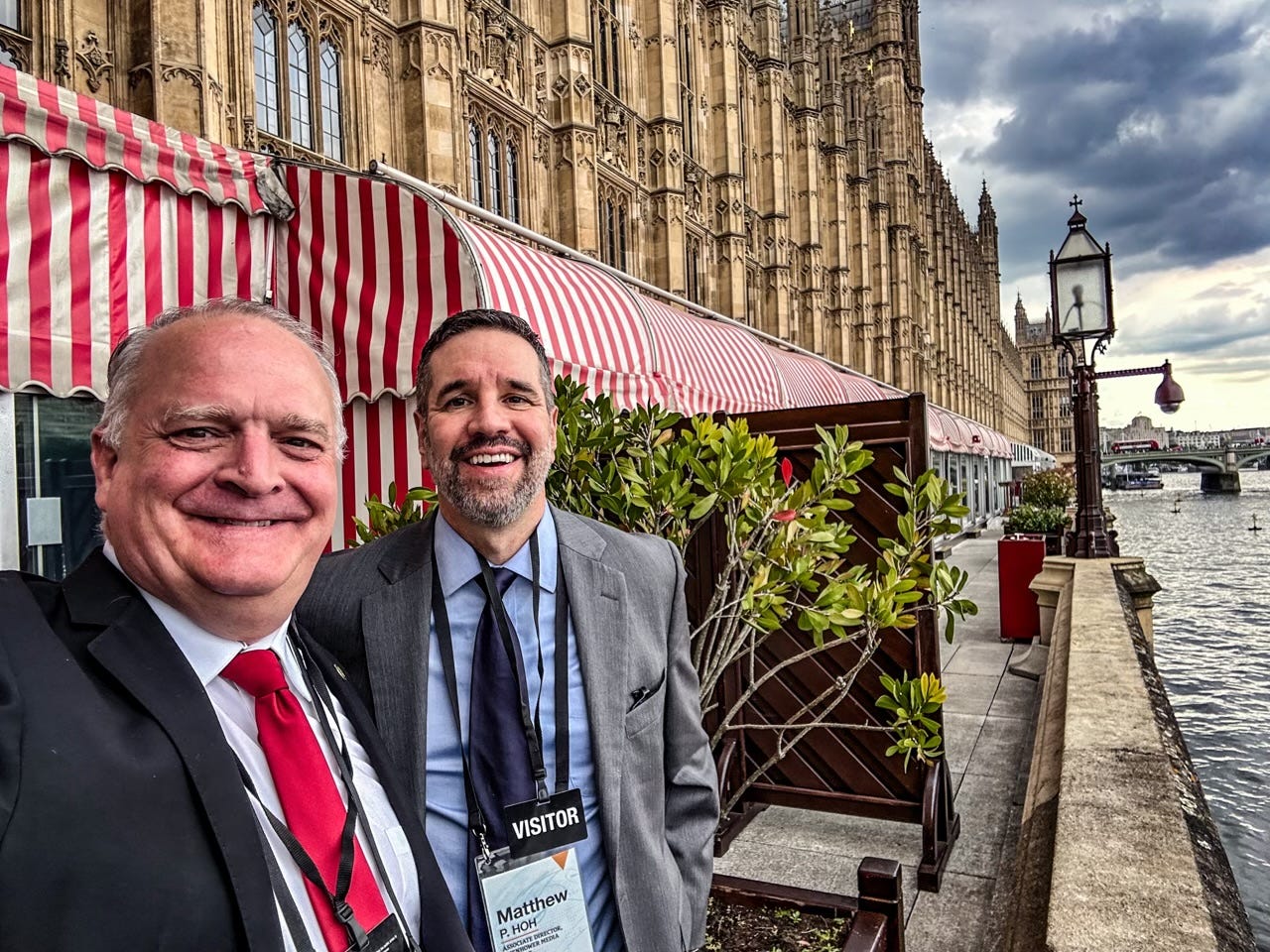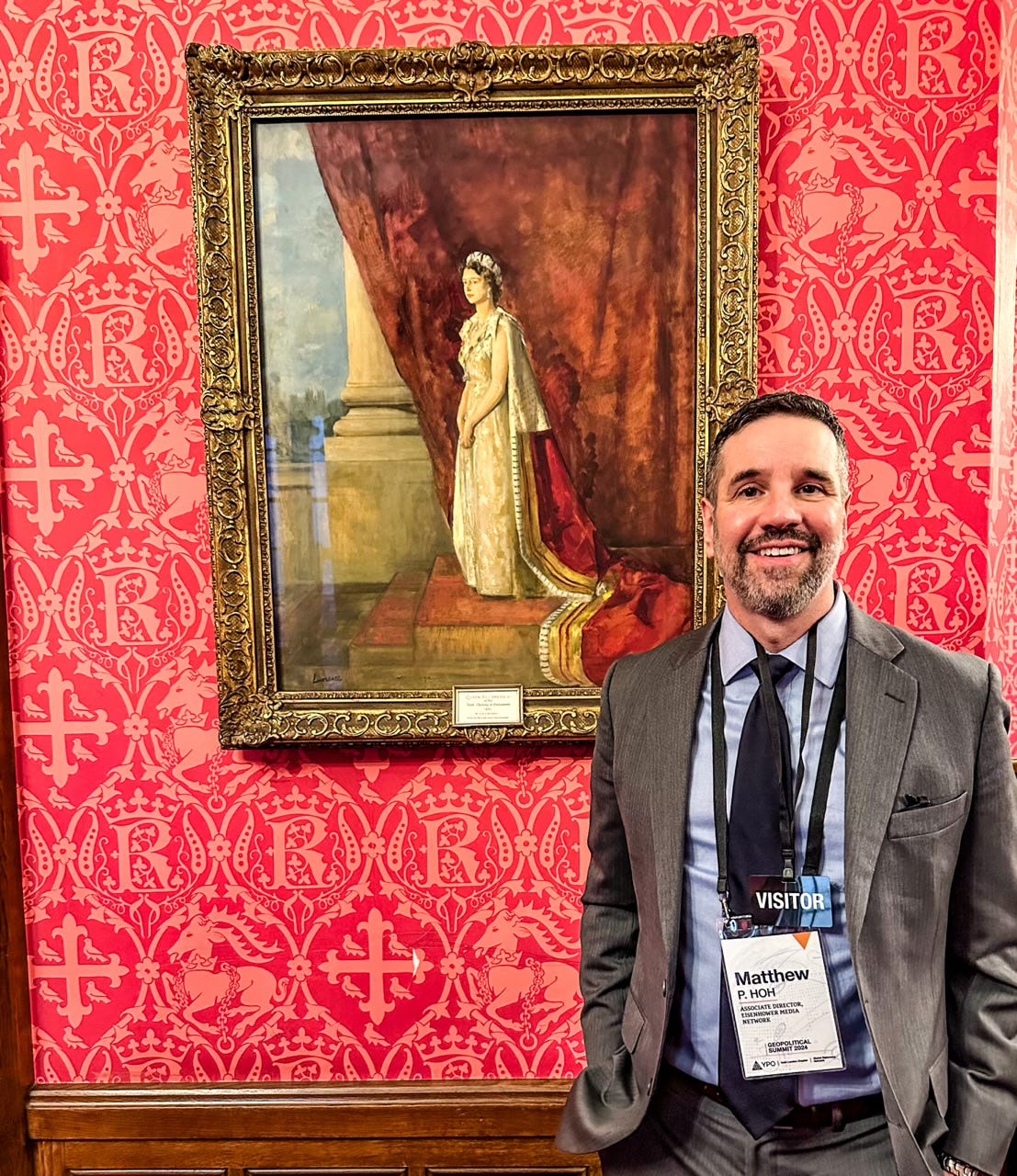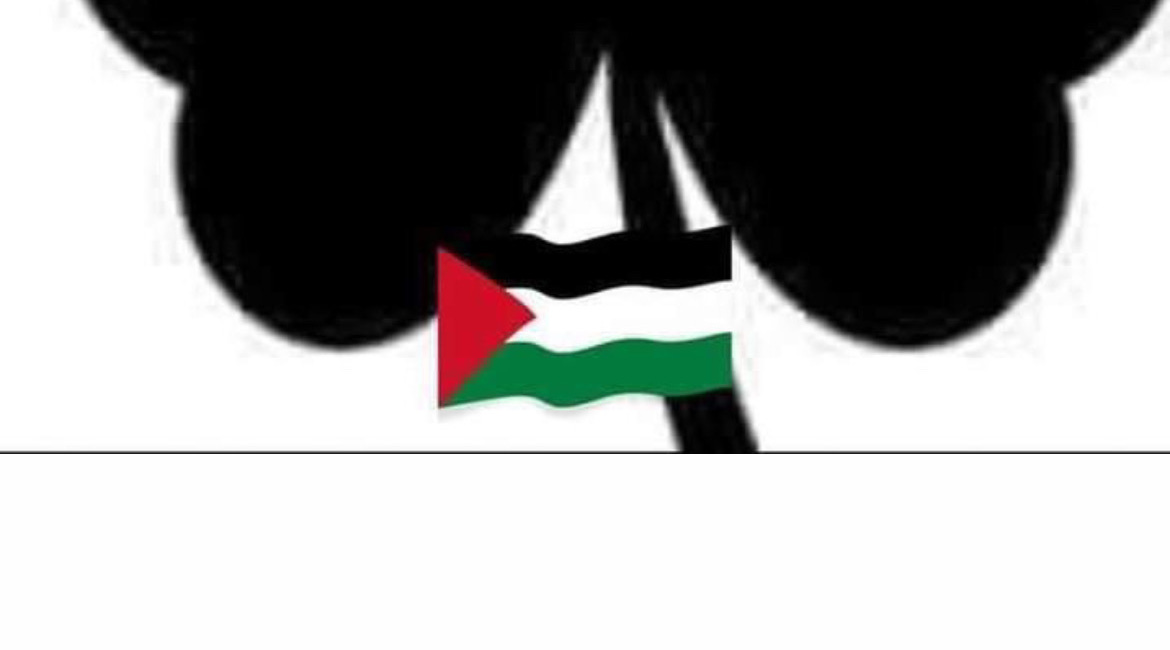The ice age is coming, the sun's zooming in
Engines stop running, the wheat is growing thin
A nuclear era, but I have no fear
'Cause London is drowning, and I live by the river
- The Clash
Two weeks ago, in London, I took part in a panel discussion on the Ukraine-Russia war at the House of Lords before an audience of 100 MPs and business leaders. It was a unique opportunity to address men and women who don’t necessarily hear points of view like mine.
The panel included my good friend, Danny Davis, who is probably the best American commentator on the Ukraine-Russia war, a senior economist from Rand, and the former head of the Royal Navy. It was moderated by a very successful American businessman. While we disagreed on details, we were, to my surprise, all agreed upon the urgent need for negotiations to end the war in Ukraine. That point was met with acceptance by some in the audience, curiosity by others and outright hostility by the rest - a hostility reminiscent of Francis Bacon’s Idols of the Tribe.
If a video of the panel is posted, I will post it to this page. The comments from my colleagues and the back-and-forth between the panel and members of the audience are well worth listening to.
I’ll note that a week after our panel, Reuters published a big story on how Russia's recent and current proposals for a ceasefire have been ignored by Ukraine and the West. I don't know whether my analysis for Russia’s reasons for continuing to seek a ceasefire and negotiated settlement concurs with their actual reasons (the below remarks contain a truncated version of my thoughts on why Russia seeks negotiations, see here and here for longer thoughts).
Here’s what I said at the House of Lords:
In the traditional sense of victory, the capture and control of the entirety of Ukraine, the war is unwinnable for Russia.
While the Russian military and economy have grown stronger over the last two years, the size and resources, as well as the political will required to defeat and occupy all of Ukraine, are still well outside what Russia could marshal, field and produce.
The problem the Russians also have is for every mile they advance westward, they encounter fewer Russian-speaking Ukrainians and more Ukrainian-speakers. The Russians, by their admission, go from liberator to occupier the further west they move. Success along the conventional frontlines of the war, pushing the Ukrainian army westward, creates the probability of insurgency in their rear. So the Russians are increasingly perplexed with a two-front war the further west they move, again, a war in which they cannot achieve a traditional military victory.
Just as the war is unwinnable for the Russians, it is unwinnable for Ukraine and NATO. There is no possibility of Ukraine's conventional victory over Russia; Russia is just too big and strong for that. We’ve seen a great deal of Russian preparation, competence, and adaptation in this war that needs to be respected and not underestimated. In Western politics, strategy, policies and media, we have seen the opposite of that, and the Ukrainians are paying the price for it.
The results promised by NATO these last two years have not come to pass: the collapse of the Russian economy, the defeat of the Russian army, and regime change in Russia. According to the American government, Russia is stronger now than it was two years ago. Russia is in a much better position than Ukraine and the West to wage an ongoing war of attrition.
To expel Russia from Ukraine, a NATO army—an army in the literal sense—3-5 corps of armor and mechanized infantry units with full air, naval and missile support, attacking deep into Russia, is required. In short, it would be World War III.
A collapse of the Ukrainian military due to manpower, supply issues, including weapons and munitions, general officer incompetence, corruption, and tactical and operational defeat is a serious possibility. The same possibility exists for a collapse of the Ukrainian government due to corruption, loss of public support, economic and financial stress, and conceivable coup.
The continued NATO goal of a WWII-style victory over Russia exacerbates not only the risk of Ukrainian collapse and prolonged further suffering of Ukraine’s people and land but through the inevitability and inescapability of escalation, this NATO goal creates a risk trajectory that no one here should be willing to accept, particularly when compared with the prospects of a negotiated settlement.
We have already seen what a peace deal looks like through the 2015 Minsk II Accords and the forsaken April 2022 peace agreement. These were two genuine diplomatic attempts toward peace and stability that were undone by what can only be called militarist political desires.
The rough contours of the 2022 agreement drafted in Turkey included:
- a withdrawal of Russian forces to pre-February 24, 2022 borders;
- a fully demilitarized eastern Ukraine;
- a neutral Ukraine modeled on Austrian neutrality during the Cold War;
- a popular referendum in the Donbas region to ascertain future status in line with international law and conventions;
- guarantees of security by Western powers to Ukraine;
- guarantees of civil, political and cultural rights to all Ukrainians and;
- resolution of the status of Crimea decided by negotiation in the future.
Any agreement would, of course, have to be updated to include Ukraine's reconstruction. It is worrisome that Russia speaks of the oblasts it controls as annexed to Russia, but more concerning for proponents of NATO’s victory strategy should be Western political uncertainty, especially American.*
A risk analysis for both sides leads to the conclusion that attempting a negotiated peace is much more reasonable than continuing an unwinnable war with its dangers of Ukrainian collapse for the West, an unwinnable forever war for Russia, and nuclear war for us all.
For Ukraine and the West, a continuation of the current NATO strategy means hoping for a stalemated war, hoping for tens of billions of dollars, pounds and euros to remain available to prevent collapse, and hoping that escalation doesn't become apocalyptic. At the same time, the dying and destruction continue, something I have given much too little attention to. At best, this time next year, the same unwinnable meatgrinder of a war is raging, only with the risks worsened by time.
A golden bridge, built through a negotiated political settlement, as the Chinese military philosopher Sun Tzu would undoubtedly recommend, is available and should be taken by both sides to exit from this war.
*Due to time constraints, I did not include the italicized section in the remarks I delivered, but I include them here to help you understand what the forsaken April 2022 agreement between Ukraine and Russia looked like.
Below the photos and The Clash video, I have pasted my written and video commentary from the past week regarding Ukraine-Russia and Israel-Palestine.

What would my ancestors in the 3rd Tipperary Brigade have to say?
Their Time Will Come
I gave a Saint Patrick’s Day speech at a rally for Palestine today. Last year, I spent Saint Patrick’s Day standing in a bar with a fellow Marine veteran. In 2010, he had been a mortar man with Third Battalion, Fifth Marines, in Sangin, Helmand Province, Afghanistan. In a few months, more than one in five of those Marines and sailors were casualties. Th…
My thoughts on the past week’s escalation in Ukraine, including interview appearances:
This latest escalation by the US and NATO allowing Western weapons to be used by Ukraine to strike into Russia will likely have little effect on the Russian military and its operations. As we have seen with the numerous introductions of more powerful and longer-range weapon systems by the West, the Russian military will adapt to and counter these weapons quickly, as they have done with every weapon system the US and NATO have introduced to Ukraine.
The danger lies in Russia’s response, which they have not only stated but have already shown. The West sent in HIMARS and Storm Shadow missiles, and the Russians responded with glide bombs and hypersonic missiles. The Nordstream pipeline was destroyed and Russian oil facilities were attacked, and Russia launched devastating attacks on Ukrainian energy infrastructure and port facilities. The Russians have made clear that they will consider an attack on Russian territory with Western weapons to be an act of war by Western nations. Their response may be confined to Ukraine or extend outside of Ukraine – a threat that should be taken seriously.
We have warned of the danger of this escalation over and over again, including in our New York Times ad one year ago.
Western media, most recently Reuters, has confirmed that the Russians have attempted to negotiate throughout this war. They have only met with escalation from the West. Before this war expands, either in its destruction or breadth, a cease-fire and negotiations must occur.
At best, a year from now, the war continues as an unwinnable meat grinder, with hundreds of thousands of more ruined lives. More likely, Ukraine may have collapsed in some form, and we face greater instability, uncertainty, and danger in Europe and the world.
What is needed is diplomacy, not escalation. This is a reality the West refuses to acknowledge.
Post-script to the above statement on a Russian response to the escalation:
I think Russia has been quite clear about what this escalation could mean.
Just last week the Russian Foreign Ministry spokesperson said in response to the possibility of British weapons striking Russian soil that Russia would strike British targets in Ukraine and beyond. This certainly holds true for weapons from the US, France, Germany, etc.
What this means are strikes against facilities in Ukraine, where NATO troops may be training Ukrainian troops or assisting with Ukrainian command functions; it may mean shooting down NATO reconnaissance aircraft and drones; it may mean destroying NATO logistics vehicles that have been reported to be bringing weapons and material into Ukraine, etc.
The great danger is what if these weapons from the West strike a civilian target, say a school full of Russian children, what then would Russia’s response be…?
Of course, what happens if Russia shoots down an American reconnaissance plane or destroys a logistics convoy that is utilizing British army trucks and drivers… How does the West respond?
I don’t think Russia will go so far as to attack Western military targets outside of Ukraine, even though they could claim the right to do so, because of the command and control functions involved in attacks against Russian targets. I don’t think the Russians want that kind of escalation. It’s clear that for the extremely small benefits these weapons will provide Ukraine, the risks are simply too great.
By the way, filling in for Ray McGovern on Judging Freedom had me thinking that regular viewers were reacting this way to his replacement:
Thank you for reading. Please be well, safe and happy.




Escalation has been a major feature of this war. Supplying defensive weapons like ATMs and shoulder-launched SAMs has grown to main battle tanks, heavy artillery, combat aircraft, even longer-range missiles. It's become an arms bazaar for the West and especially the USA.
Somehow, Ukraine's looming defeat is linked to NATO, a referendum on its vitality. Yet NATO was designed to defeat an attack from an empire that ceased to exist in 1991. NATO is an organization grasping wildly for a purpose and seizing on Ukraine as its reason for being.
The longer the war lasts, the higher the stakes, I think, and the less predictable the outcome. Meanwhile, plenty of soldiers continue to die on both sides as Congress waves Ukrainian flags to another $60 billion handout to the military-industrial complex.
It's all so unnecessary even as the potential for larger disaster increases.
Thanks for fighting for sanity and peace, Matt.
May your excellent speech change one important mind.